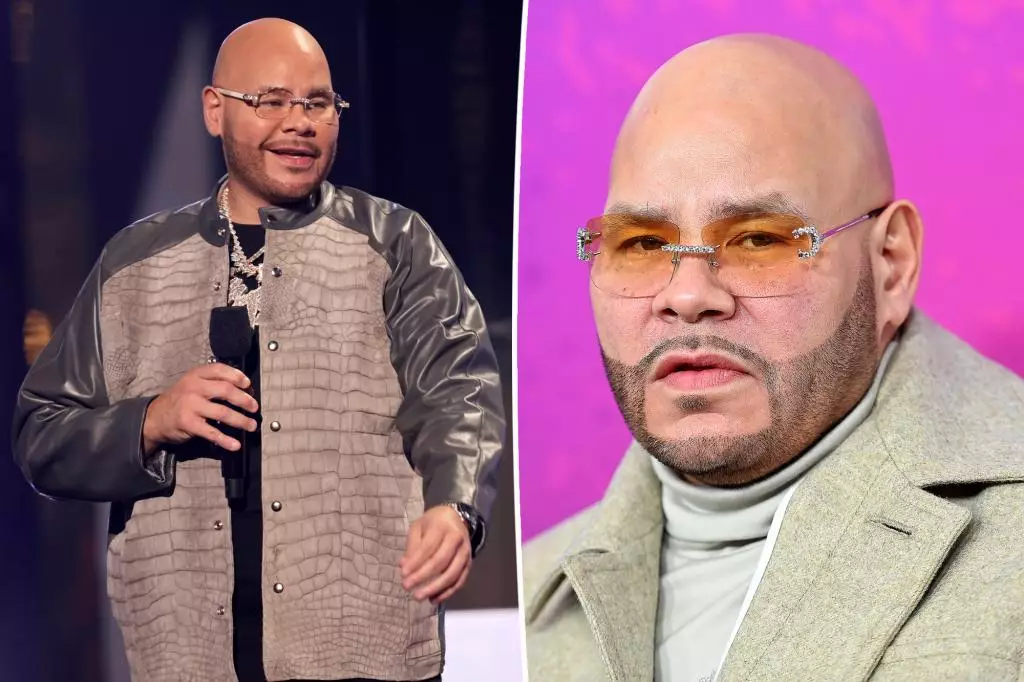The once-celebrated music career of Joseph Antonio Cartagena, known to the world as Fat Joe, has recently been marred by serious allegations that could change everything. Terrance “T.A.” Dixon, who has been described as Fat Joe’s ex-hypeman, has taken drastic steps by filing a staggering $20 million lawsuit, which accuses the rapper of engaging in sexual acts with minors. This shocking revelation has ignited conversations about power dynamics in celebrity culture, the ethics of exploitation, and the responsibility of public figures.
According to court documents that surfaced through Page Six, Dixon asserts that he personally witnessed Fat Joe engaging in sexual relations with underage girls, specifically those aged fifteen and sixteen. His claims suggest not only exploitation but a disturbing pattern of behavior where young girls were allegedly coerced into sexual acts in exchange for materialistic gains such as money, clothing, and even the payment of cellphone bills. The very notion raises serious questions about consent, maturity, and the inherent vulnerabilities present in such situations.
The Dark Side of Fame
The story takes an even darker turn when Dixon points out that one of the alleged victims was a 16-year-old Dominican girl. Dixon’s accusations imply that the relationship was transactional, reducing the girl to nothing more than an asset for physical gratification. Further allegations detail that Fat Joe even facilitated a Brazilian Butt Lift for another female teenager, which suggests not only a predilection toward young girls but also a disturbingly predatory interest in their physicality, reinforcing negative stereotypes surrounding celebrity culture and female objectification.
These allegations culminate in a portrayal of a man who allegedly leveraged his fame and wealth to manipulate and exploit vulnerable young women. It causes one to ponder the repercussions of celebrity influence, particularly in a society fixated on idolization. Fat Joe’s status as a beloved rapper raises uncomfortable questions about the lengths individuals may go to obscure problematic behavior, especially when it is cloaked in the allure of stardom.
Allegations of Bullying and Intimidation
Moreover, Dixon’s lawsuit also highlights alleged labor exploitation and psychological abuse during his tenure with Fat Joe, which lasted from 2006 to 2019. He claims not only was he underpaid for his work, but he was also denied writing credits and kept in the dark concerning royalties. The lawsuit paints a bleak picture of an environment devoid of basic respect and fairness; a harsh reality that many individuals in the entertainment industry may face when power dynamics tilt heavily towards an individual who holds the cards.
Dixon isn’t solely targeting Fat Joe; he has broadened the scope of his lawsuits to include other entities, indicating a network of complicity. By accusing various organizations associated with Fat Joe of the same exploitative practices, Dixon is calling into question the entire structure of support, management, and synergy that fuels the music business. This situation reminds us that the consequences of fame can have ripple effects beyond the individual, contributing to a culture of silence that surrounds abuse and manipulation.
Defense and Denial
In response to Dixon’s allegations, Fat Joe’s attorney, Joe Tacopina, has vehemently denied any wrongdoing on behalf of the rapper. His defense paints the entire lawsuit as a mere ploy to get attention and generate media coverage, suggesting that the motives behind the accusations are more about financial gain than justice. Tacopina’s claims indicate a belief that the truth is often obscured by sensationalism, particularly in high-stakes cases that involve public figures.
Yet, his assertions also raise questions about accountability. While the legal defense argues for presumption of innocence, how often do we ignore the voices of the marginalized and oppressed amidst sweeping denials from powerful figures? Tacopina claims to have spoken to women listed as victims, who he states have denied any wrongdoing on Fat Joe’s part, yet the lingering question remains: who holds the power in these narratives?
The Role of Media and Public Perception
As details continue to emerge, the role of media becomes crucial in shaping public perception. Each headline contributes to a growing dialogue about morality in entertainment, calling into question the ethics of celebrity worship and our societal failure to protect vulnerable individuals. Dixon’s lawsuit, regardless of its outcome, serves as an important reminder that the glamorous world of music is not always lined with gold; beneath the surface often lies a disheartening reality rife with manipulation, abuse, and the omnipresent struggle for power.
While the truth will eventually surface, we must remain vigilant in our critique of not just the accused, but also the complex systems that allow such situations to fester. As consumers of media, it is vital that we question the narratives being presented and examine the broader implications of celebrity culture on societal values.

